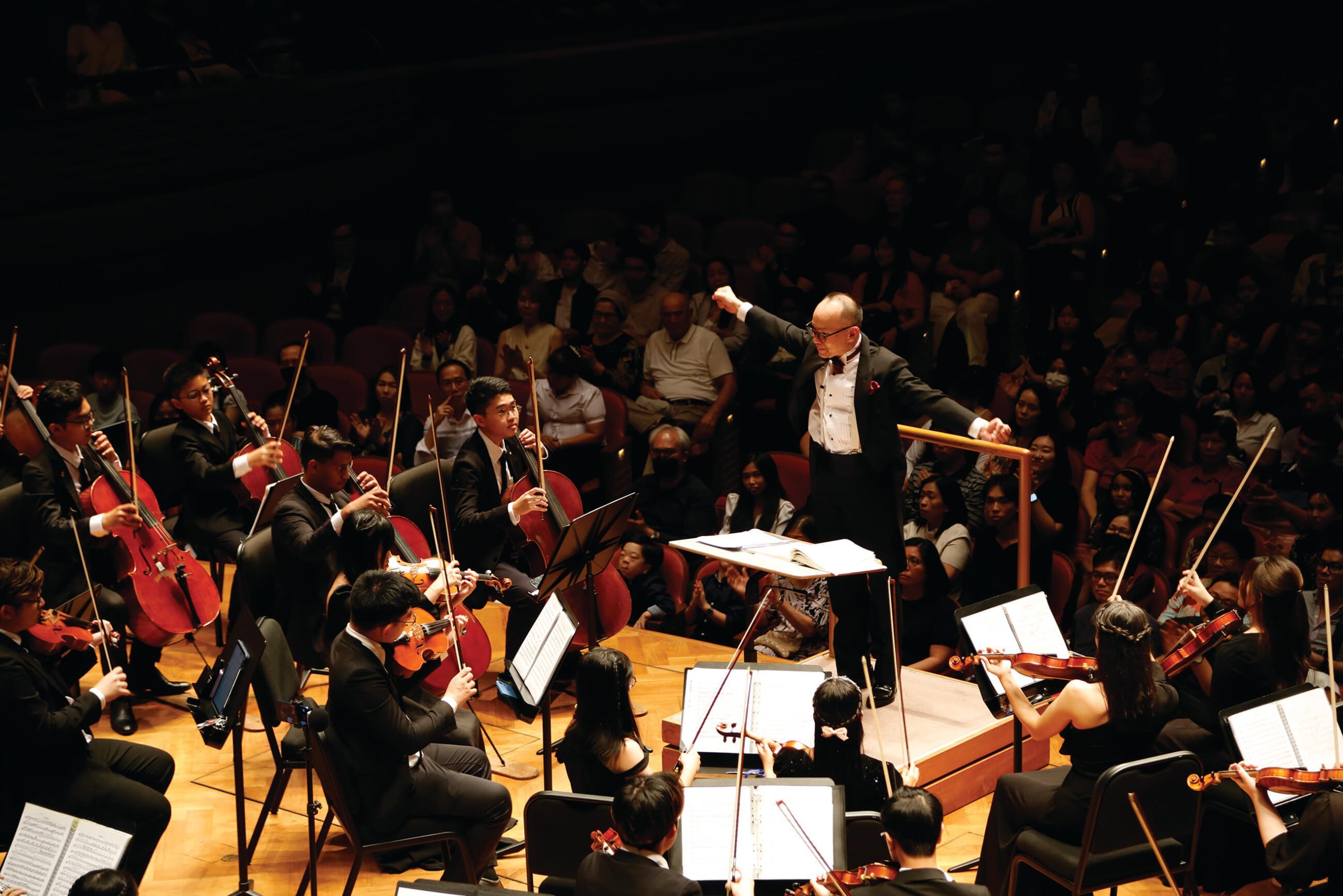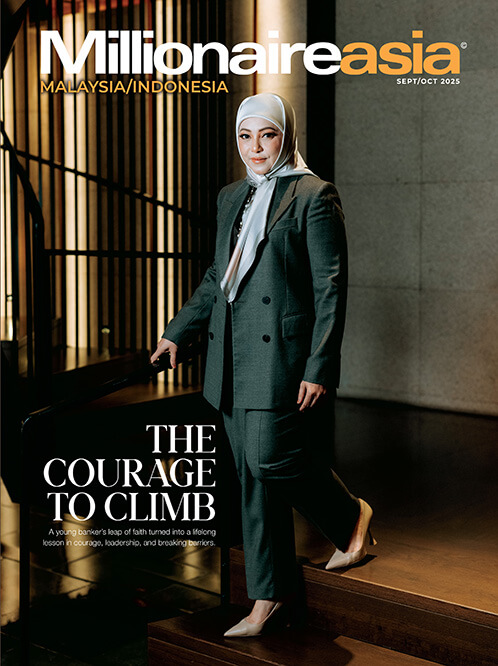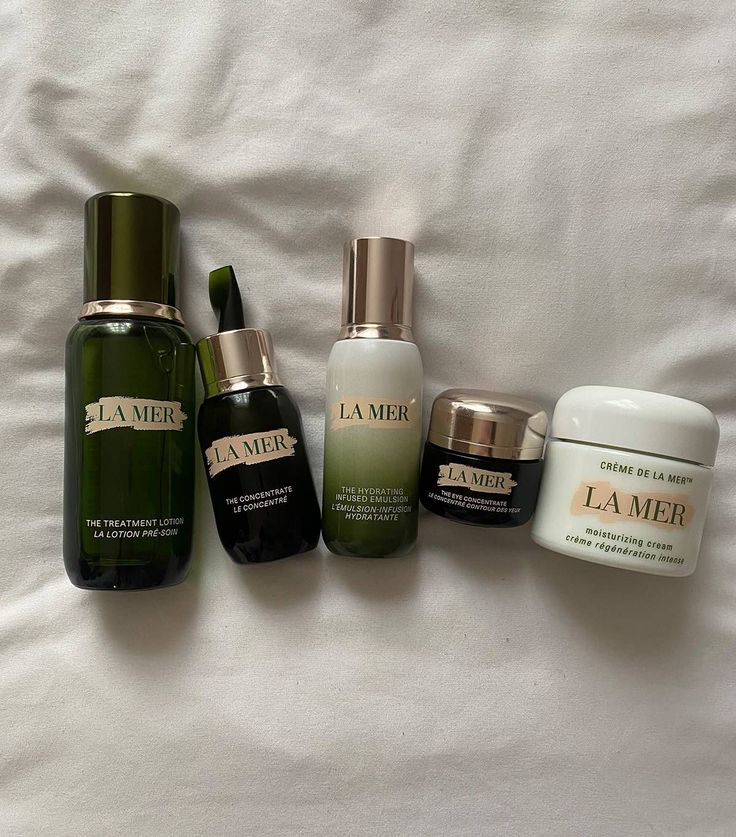One day, Cambodia. The next, Singapore.
Somewhere between flights and rehearsals, he finds a sliver of time. A late-night video call – the only window in a packed calendar of performances, meetings, and masterclasses – feels more like a favour than an appointment.
At 52, Pook has become more than a celebrated conductor. He’s a force in Malaysian music, a man whose baton is as much a tool of education as performance.
His legacy already includes the Selangor Symphony Orchestra (SSO) and its youth division, the Selangor Symphony Youth Orchestra, where musicians as young as 11 discover what it means to play in harmony with something larger than themselves. Occasionally, their journey takes them to the grand stage of the Petronas Philharmonic Hall, where lights dim, the audience hushes, and young musicians find their place in the world.
“Music should be accessible to everyone, not just the privileged,” Pook says, his voice calm but resolute.
This conviction stems from a childhood in Ipoh, a rustic town where dreams of climbing trees and swimming in rivers were exchanged for something unexpected: a place in the school band.
It was there, backed by the quiet approval of friends, that Pook first touched an instrument – a clarinet – and heard whispers of talent. He didn’t believe it at first.
“Talent has little to do with it,” Pook insists now. “It’s about practice, practice, and more practice.”
He leans into the idea that hard work, not divine inspiration, is the bedrock of musical excellence.
He laughs, recalling how one teacher once suggested he take up plumbing.
“I started late,” he says, “and had no talent, or so they thought.”
But late starts don’t matter when persistence is the counterweight. Pook’s journey took him across continents: to Canada’s Royal Conservatory of Music, to the University of Missouri–Kansas City, and finally to the renowned Eastman School of Music. In each place, he refined his craft, guided by mentors like Brad Lubman, a professor at Eastman and a celebrated conductor himself who moves between orchestras as easily as others change keys.
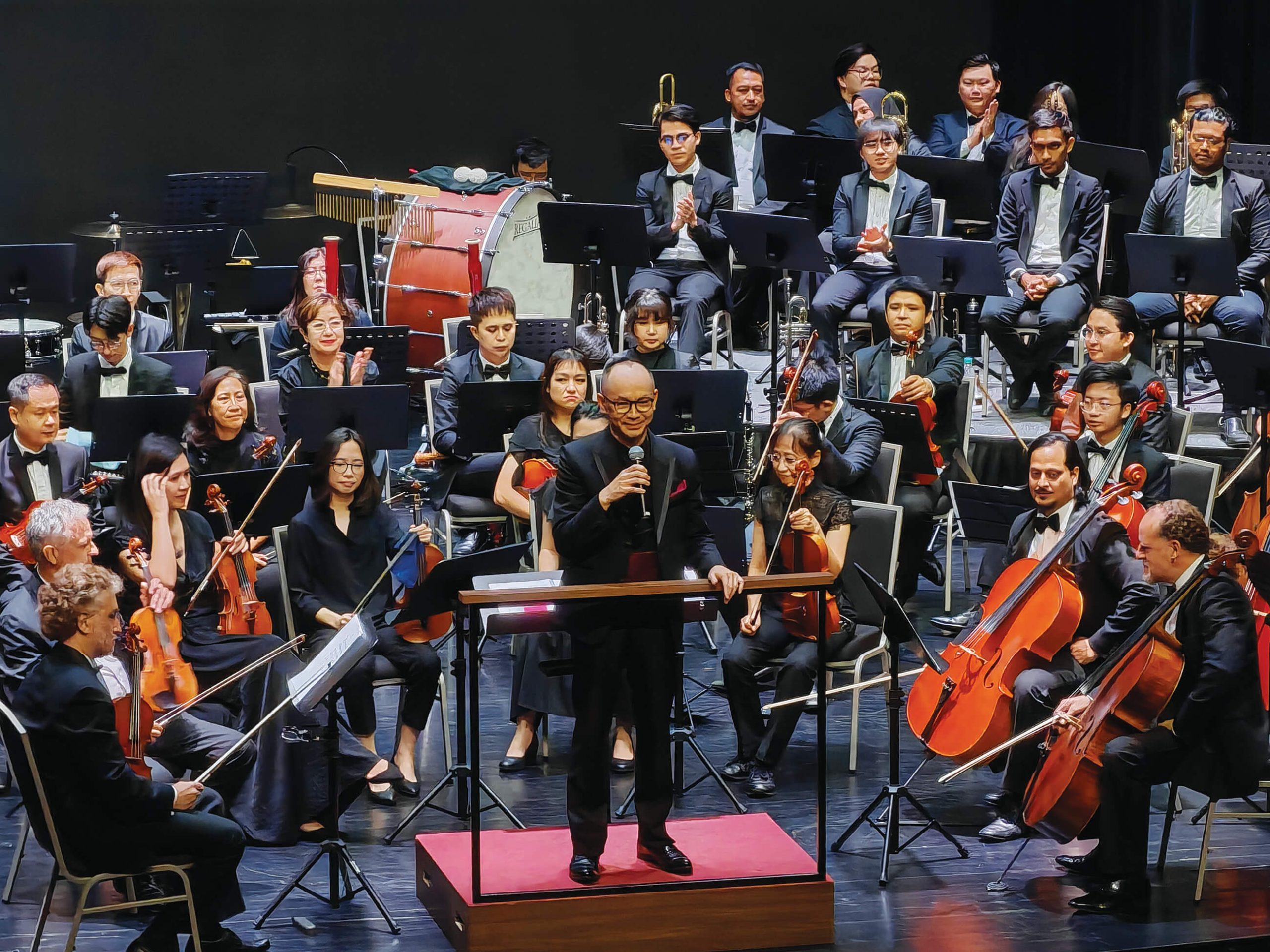
Pook’s music career is a mosaic of milestones: 18 years of music study abroad, performing at Carnegie Hall, and winning competitions. But always, Malaysia called him home.
It was there, in 2010, that he founded the Kinta Valley Wind Orchestra, and five years later, the Selangor Symphony Orchestra.
The SSO is not just an orchestra. It’s a living testament to what music can be – a non-profit ensemble of over 60 musicians, playing in venues from local concert halls to stages abroad. More than concerts, they offer chamber music, outreach programs, and a philosophy: that music should touch everyone.
During rehearsals, Pook is intensity personified. Every movement precise, every instruction clear. Yet outside that frame, he is disarmingly playful, a man who savors fine food, dreams of cold climates, and relishes the art of cooking.
“When I have time,” he smiles, as if time itself were a luxury.
Surprisingly, his retreat from music is, well, silence.
“I don’t listen to music in my downtime,” he admits. “I need space to think creatively.”
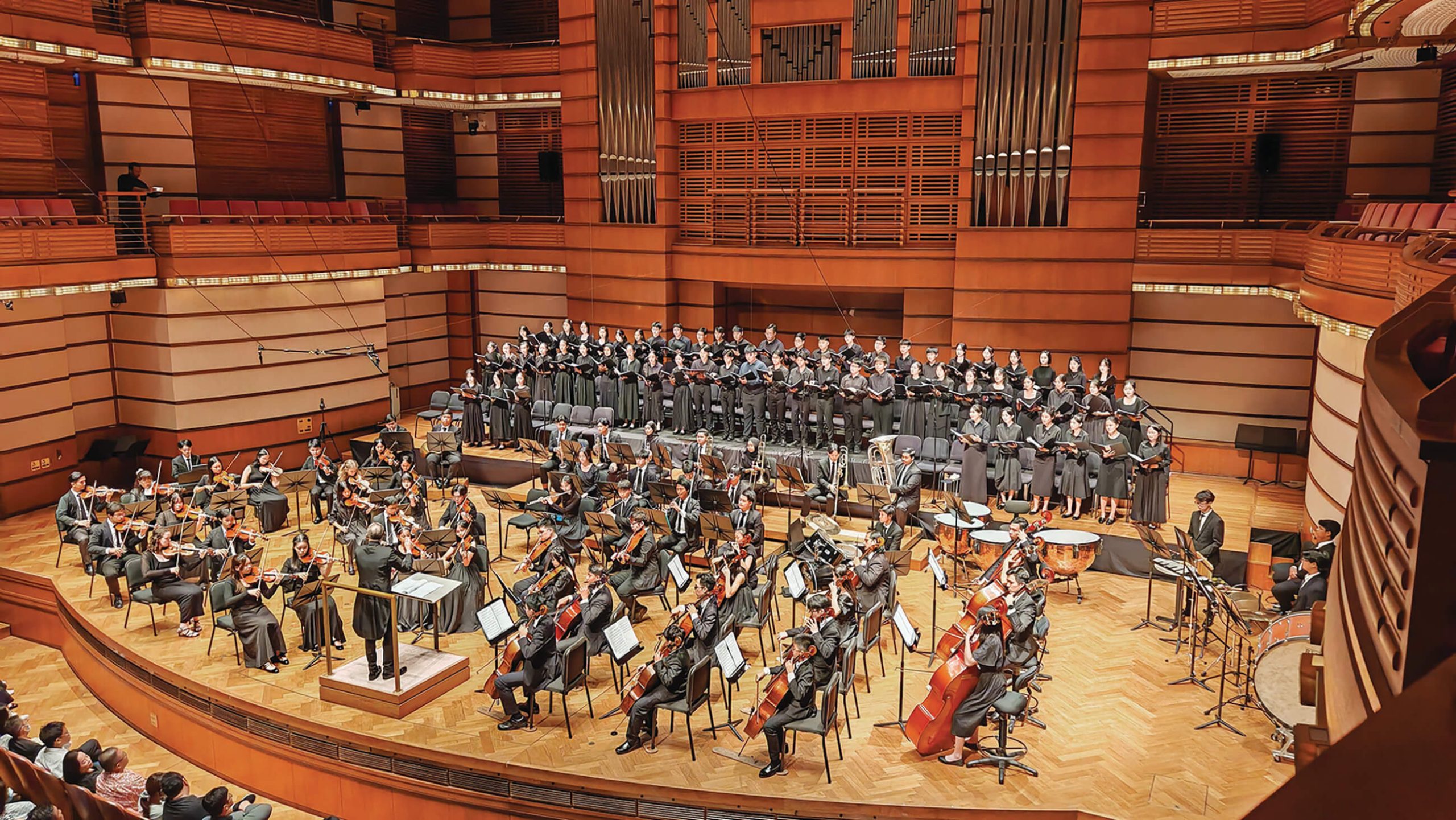
His performances blend the classical with the unexpected – folk instruments, choirs, even ballet dancers – finding ways to bridge tradition and modernity.
“You have to know your audience,” he explains. “Play something too obscure, and you lose them. It’s about balance.”
That balance has earned him invitations to conduct the Malaysian Philharmonic Orchestra, the Henan Symphony Orchestra, and the Shanghai Symphony Orchestra, among others. Sharing stages with celebrities like Alan Tam and Ning Baizura, he crafts moments that linger long after the final note fades.
One memory stands out: conducting at the Jaguar Shanghai Symphony Orchestra Hall.
“The acoustics,” he says, eyes lighting up. “It was perfect.”
His heroes include Tchaikovsky and John Williams – composers who understood the emotional pull of music. Pook, too, seeks that connection, conducting with a blend of preparation, determination, and respect.
His contributions, especially to youth, earned him the 10 Outstanding Young Malaysians Award in 2012. But accolades seem secondary to his mission: to create music that matters, music that lasts.
In the quiet moments of the interview, as the video call nears its end, there’s a sense that Pook is already thinking ahead.
Another concert.
Another rehearsal.
Another chance to make music that, for one fleeting moment, makes the world pause and listen.
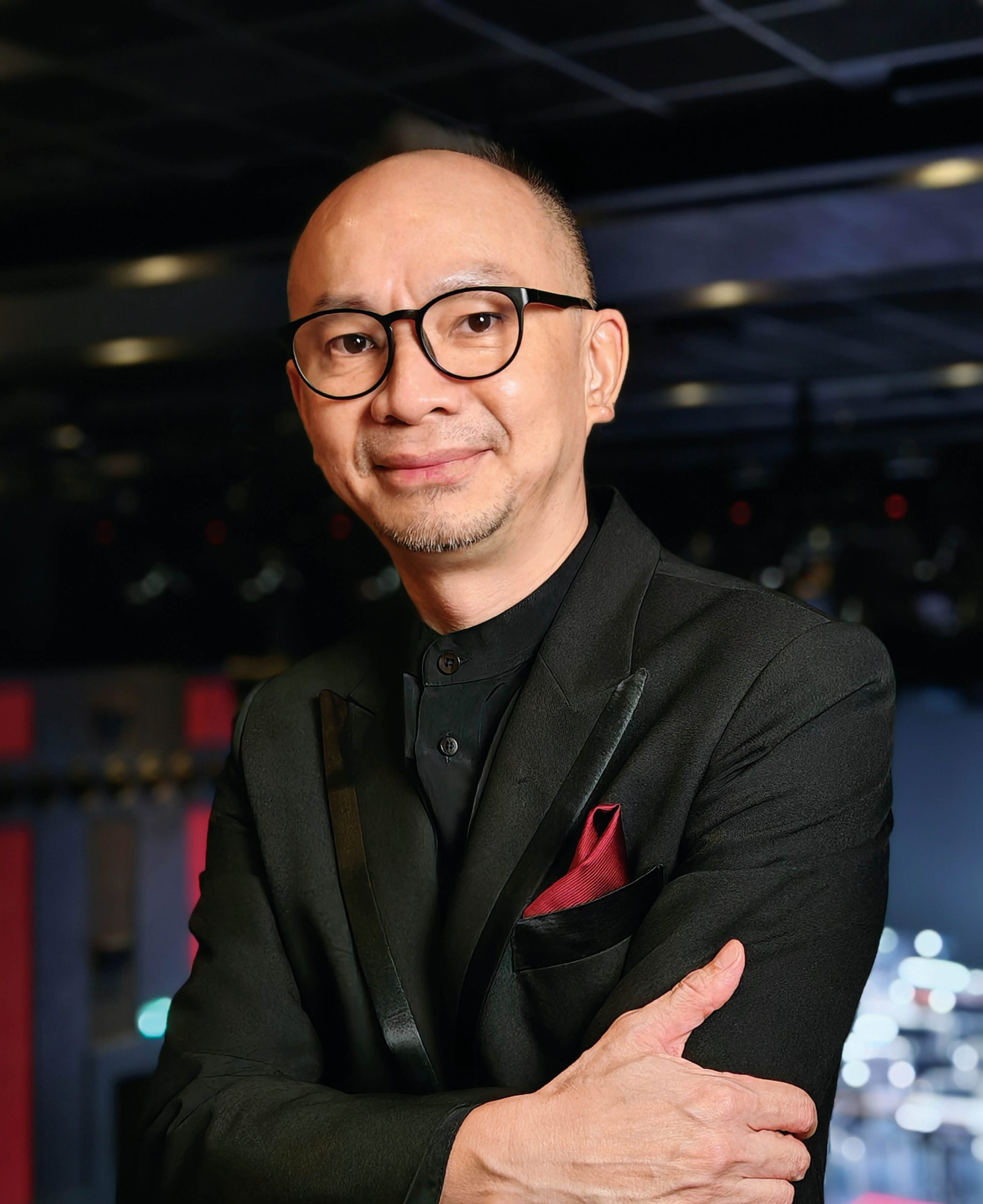
Q&A with Eugene Pook
What, in your opinion, is the mark of a good conductor?
Conducting is much more than leading musicians with a baton. Agood conductor must understand the history and context of the composition. It’s about grasping the intent and purpose behind the music. Take Vivaldi’s Four Seasons, for instance. ‘Spring’ bursts with joy and exuberance, while ‘Winter’ evokes the chill of frost and the sound of chattering teeth.
My role is to help musicians bring these emotions to life for the audience. Engaging with the audience is just as important. Whenever possible, I like to introduce the music before we begin—it helps people connect with the piece on a deeper level.
Have you faced challenges in making classical music accessible to diverse audiences?
I choose music that resonates. There will always be first-timers in the audience, so it’s important to inspire them. I’m not a fan of avant-garde experiments that alienate listeners. Introducing new works is fine, but they need to connect emotionally. Fusion often works well – blending classical music with traditional instruments like the erhu or guzheng. It’s about creating something fresh yet familiar.
At what age should one begin pursuing a career in music?
Children often start around five or six.But there’s no hard and fast rule. I started at 13, with no formal training. Hard work and perseverance can bridge any gap. If you’re dedicated, you’ll catch up.
What advice would you give to aspiring musicians?
Find a good teacher. A teacher’s role is to inspire and guide, not just instruct. I’ve had my share of setbacks, so I understand why some students feel demoralised. The right mentor can make all the difference. They push you to keep going when you feel like giving up.
How do you see the future of classical music evolving in a modern world dominated by popular music?
To remain engaging, classical music must evolve. An orchestra can blend classical with modern or pop elements. Incorporating traditional folk tunes, fusion, or even movie and anime soundtracks is fascinating. The key is to stay relevant while preserving the music’s integrity.
Besides your work with the orchestra and youth, what else do you focus on?
Music is a universal language that appeals to people of all ages. With the orchestra, we support charitable organisations like the Alzheimer Disease Foundation Malaysia – where I’m a board member – and the National Stroke Association Malaysia, among others. We raise funds through performances. Music, in this sense, becomes more than entertainment. It becomes a way to give back.
